Dr. Larry Kessler Challenges U.S. Healthcare Model: “We Are Solving a Problem Without a Target”
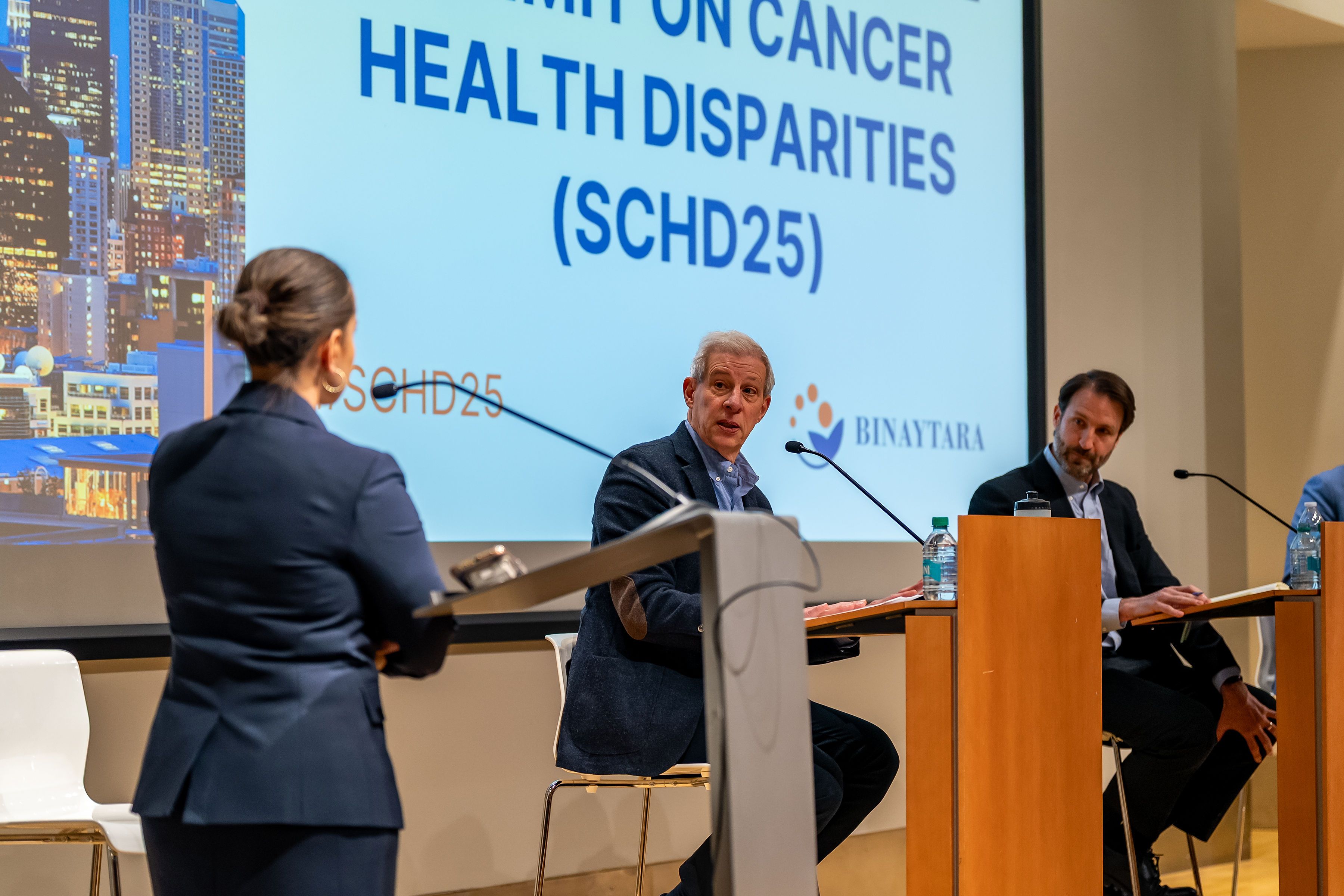
Author
Binaytara Team
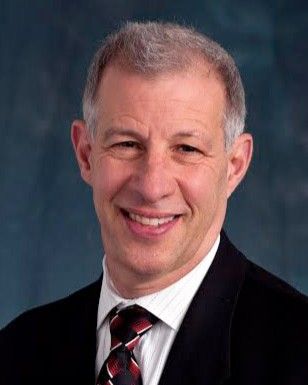
At the 2025 Summit on Cancer Health Disparities (SCHD25), Dr. Larry Kessler, professor in the Department of Health Systems and Population Health at the University of Washington, delivered a radically honest perspective during the highly anticipated closing debate: Crisis in Care: Can the U.S. Find a Sustainable Model for Affordable Healthcare?
Binaytara organizes SCHD, an annual continuing medical education conference to bridge gaps in cancer care globally. The organization brings together leaders at the forefront of oncology to address challenges at the intersection of medical innovation and equity in cancer care and delivery. The purpose of the session was to spark a robust discussion on whether the United States can achieve a sustainable, affordable healthcare model, while also addressing the reality of crisis care and accessibility. Kessler joined other notable leaders, including Dr. E. Anders Kolb, president and CEO of The Leukemia & Lymphoma Society (LLS), and Dr. Alan Balch, CEO of the Patient Advocate Foundation.
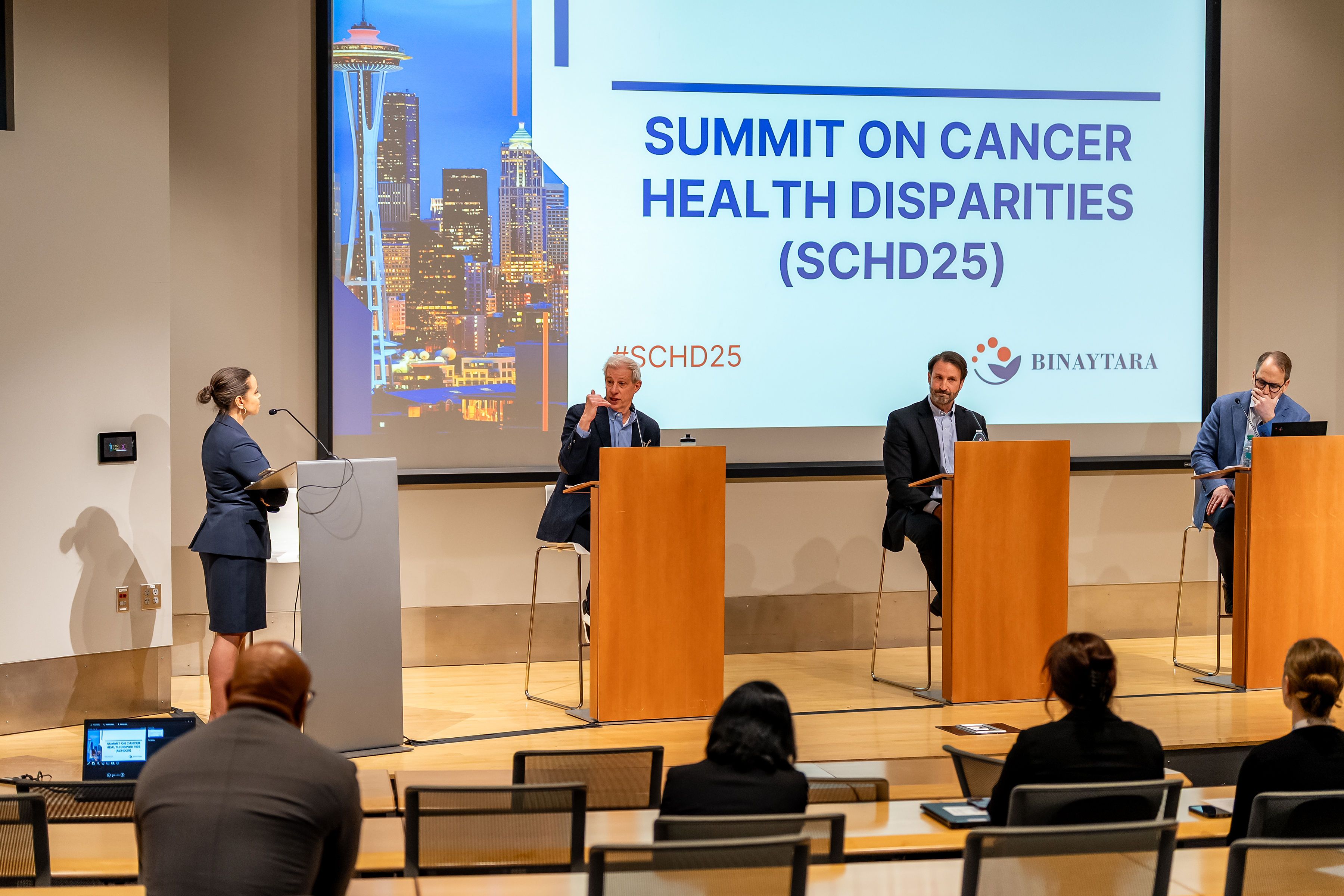
Dr. Kessler joins Dr. Kolb and Dr. Balch for the SCHD25 healthcare reform debate
Opening his remarks with a striking assertion, Kessler stated:
“There is no U.S. healthcare system. Not in the way systems exist in countries like the U.K. or Singapore. What we have is a fragmented set of systems, and no one person or organization is truly in charge. So we are trying to solve a problem without actually having a target.”
That kind of structural honesty framed the entire conversation. In a room full of cancer care leaders, Kessler made the case for moving beyond incremental fixes and into more courageous territory: system redesign, public health outcomes, and, yes, centering the patient voice.
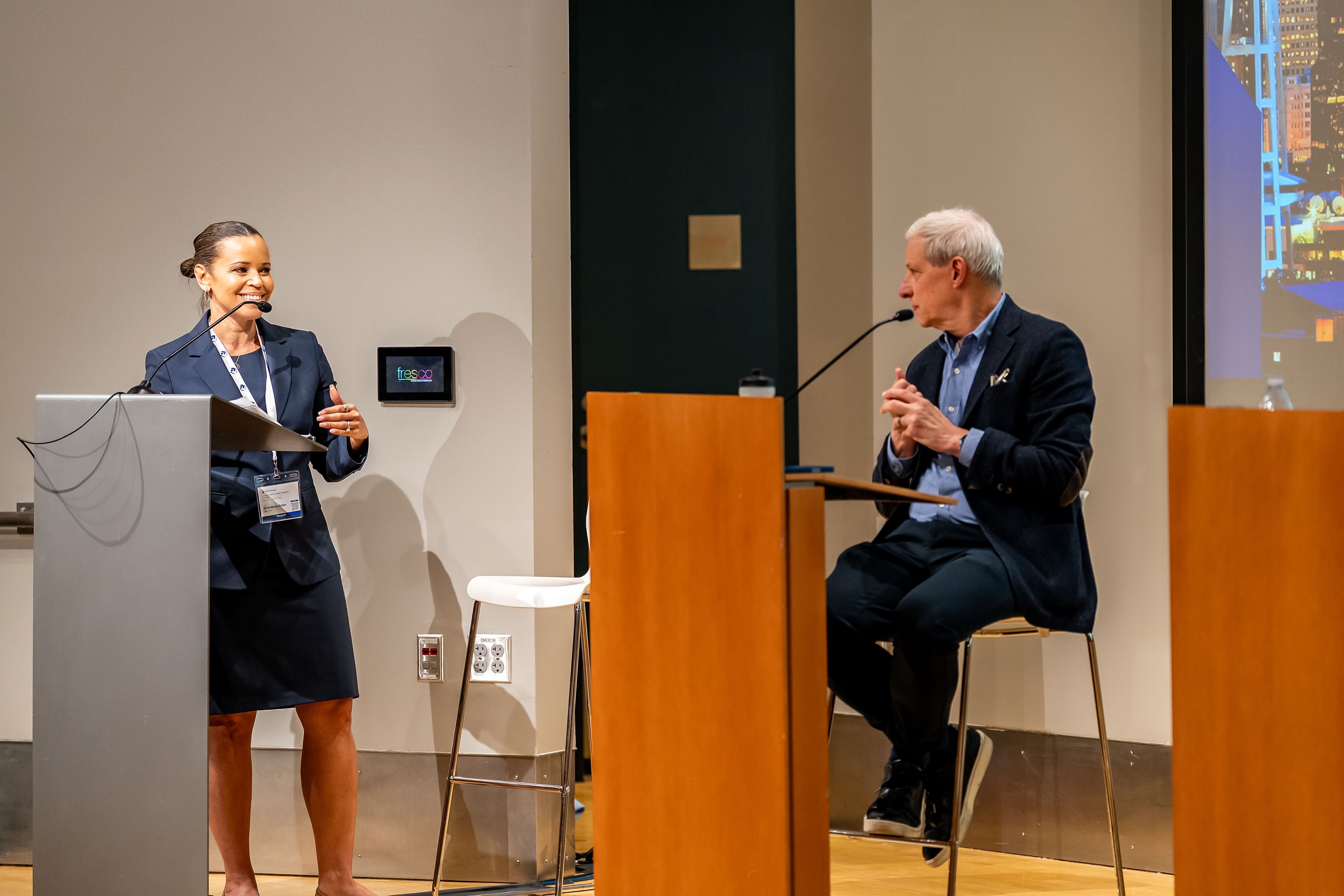
Dr. Kessler engaging with debate moderator, Anne-Marie Green, CBS 48 Hours correspondent
Healthcare That Begins With People, not Payment Models
Dr. Kessler’s remarks did not focus on abstractions or ideology. They came back, again and again, to the people the system is meant to serve. He spoke of rural patients who must travel hundreds of miles to receive basic care, and of entire communities whose access to prevention and screening is limited not just by geography, but by design.
“This isn’t just about race or economics,” he explained. “It’s about logistics. We cannot copy-paste models from the Netherlands onto a country where many people don’t even have a clinic nearby.”
In discussing innovation, Kessler turned a critical eye toward the way the U.S. measures success. “At first, I thought commercial success made sense. But when you look at what gets funded, the incremental ‘me-too’ drugs that offer marginal gains at enormous cost, it is clear we need a better yardstick. Public health outcomes are where real value lies.”
Listening to Patients and Acting on What They say
For Kessler, fixing healthcare means centering patients, not just as recipients of care, but as contributors to the system that affects them.
“We have not included patient voices in any consistent way,” he said. “We need to ask what actually matters to them. Because if it doesn’t matter to the people we serve, then why is it in our portfolio?”
This is a philosophy that is well-aligned with the School of Public Health’s mission: to solve public health challenges that center and serve real communities. Kessler’s comments at SCHD25 reflect a broader call to embed equity, accessibility, and lived experience into the core of policy and practice.
The Health Literacy gap and the Cost of Convenience
Kessler also zeroed in on two overlooked drivers of poor outcomes: prevention and health literacy. “We think we know more about prevention than we do,” he said, “We also face a massive health literacy problem. This is not political. It’s personal. And we can actually fix it.”
But fixing it, he warned, will not be easy. “We have engineered everything for convenience, not health. Most people would rather take a pill than change their behavior. That is not a moral failure. It is a design flaw. And in some communities, even basic access to healthy food is missing.”
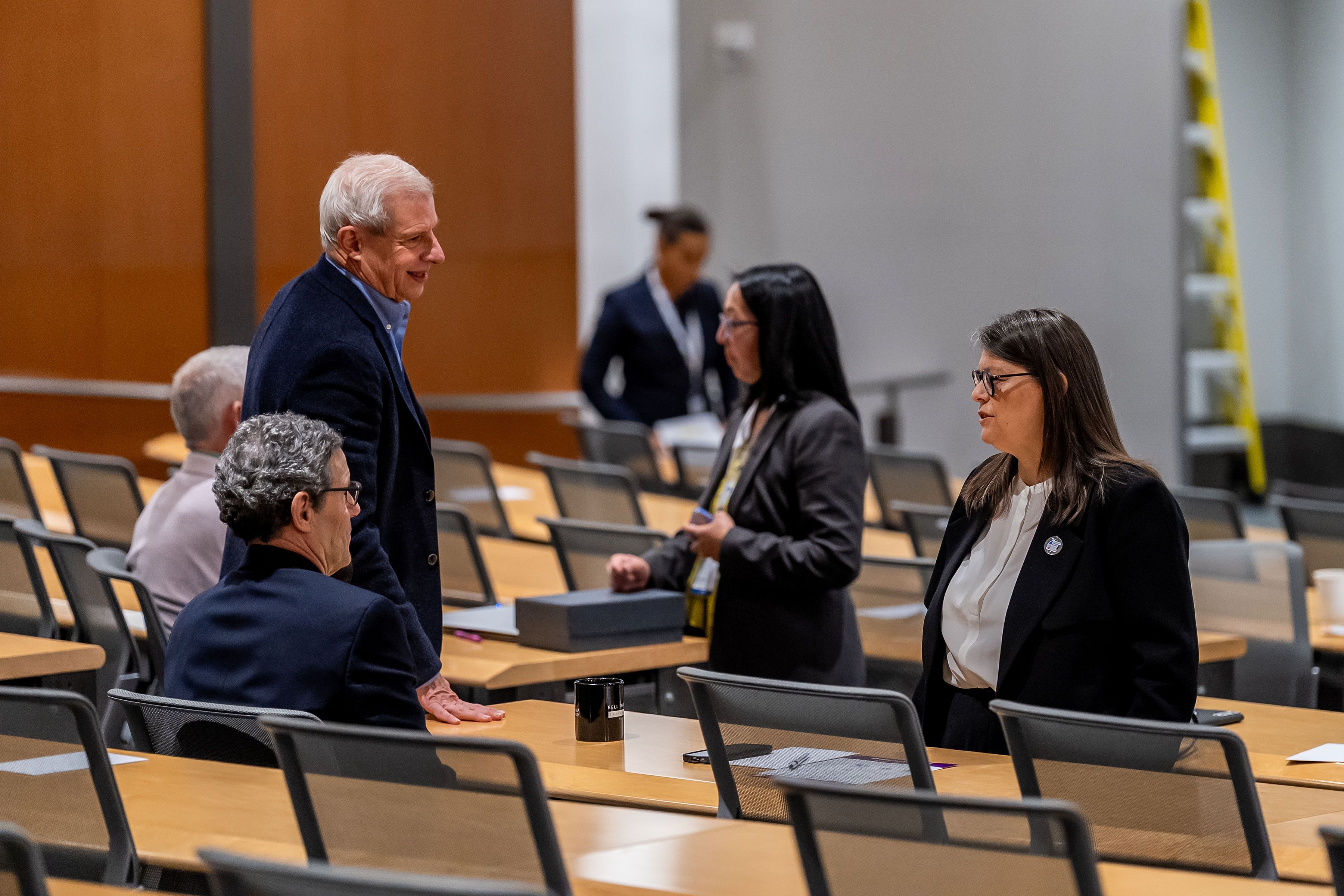
Dr. Kessler with Lisa Lacasse, president of the American Cancer Society Cancer Action Network
Looking Ahead: System Change Grounded in Humility
In the last segment of the debate, Kessler was asked what a billion-dollar investment in healthcare should focus on. He did not hesitate: “We fail in how we care for ourselves and how we use what we already have. We have the tools, we just need to use them better.”
Kessler’s voice at SCHD25 was one of realism, rooted in practical human examples and evidence-based research. He urged the audience to move away from idealized models and toward grounded, human-centered reform.
As part of the University of Washington School of Public Health community, Dr. Kessler continues to ask the hard questions and invite others to do the same. “We don’t need to rebuild the healthcare system from scratch,” he said. “But we do need to stop solving for symptoms and start designing around what people truly need.”
Disclaimer: The views and opinions expressed by Dr. Kessler are his own and do not necessarily represent the official position of University of Washington. Some statements reflect his professional experience and clinical perspective.